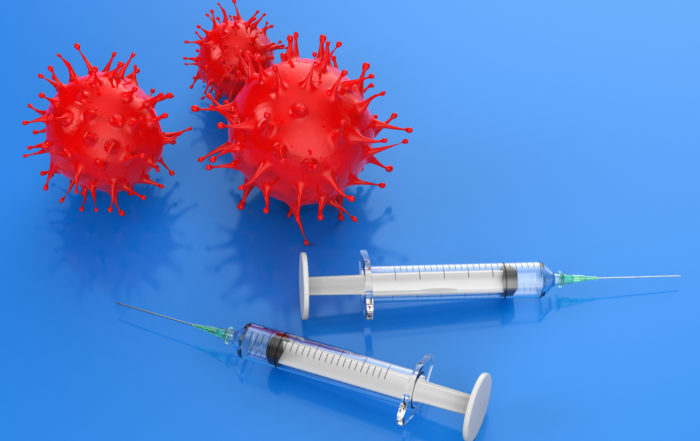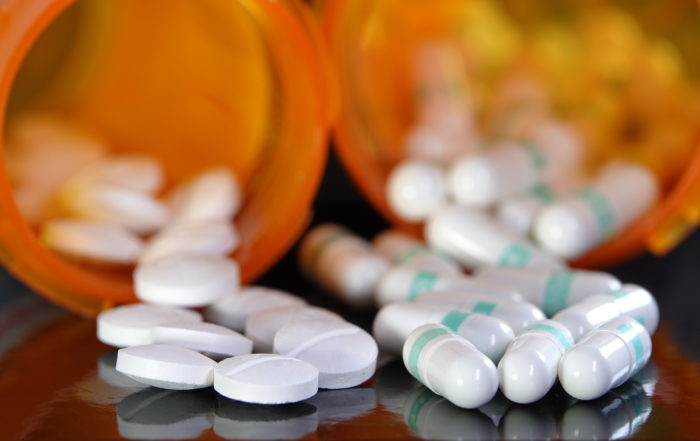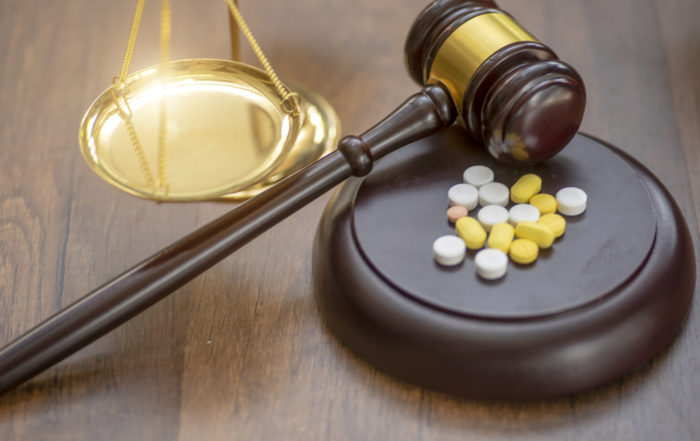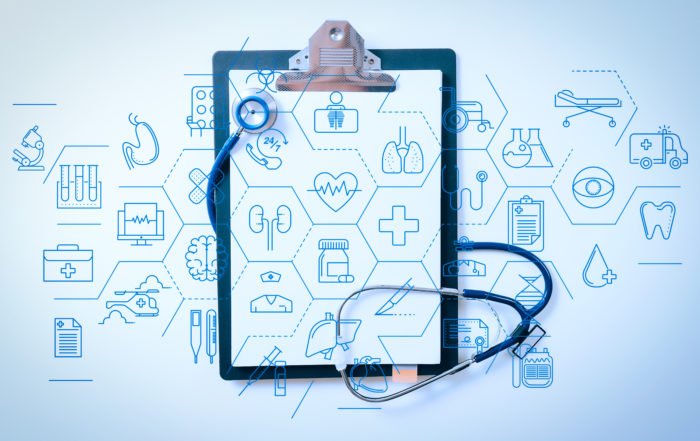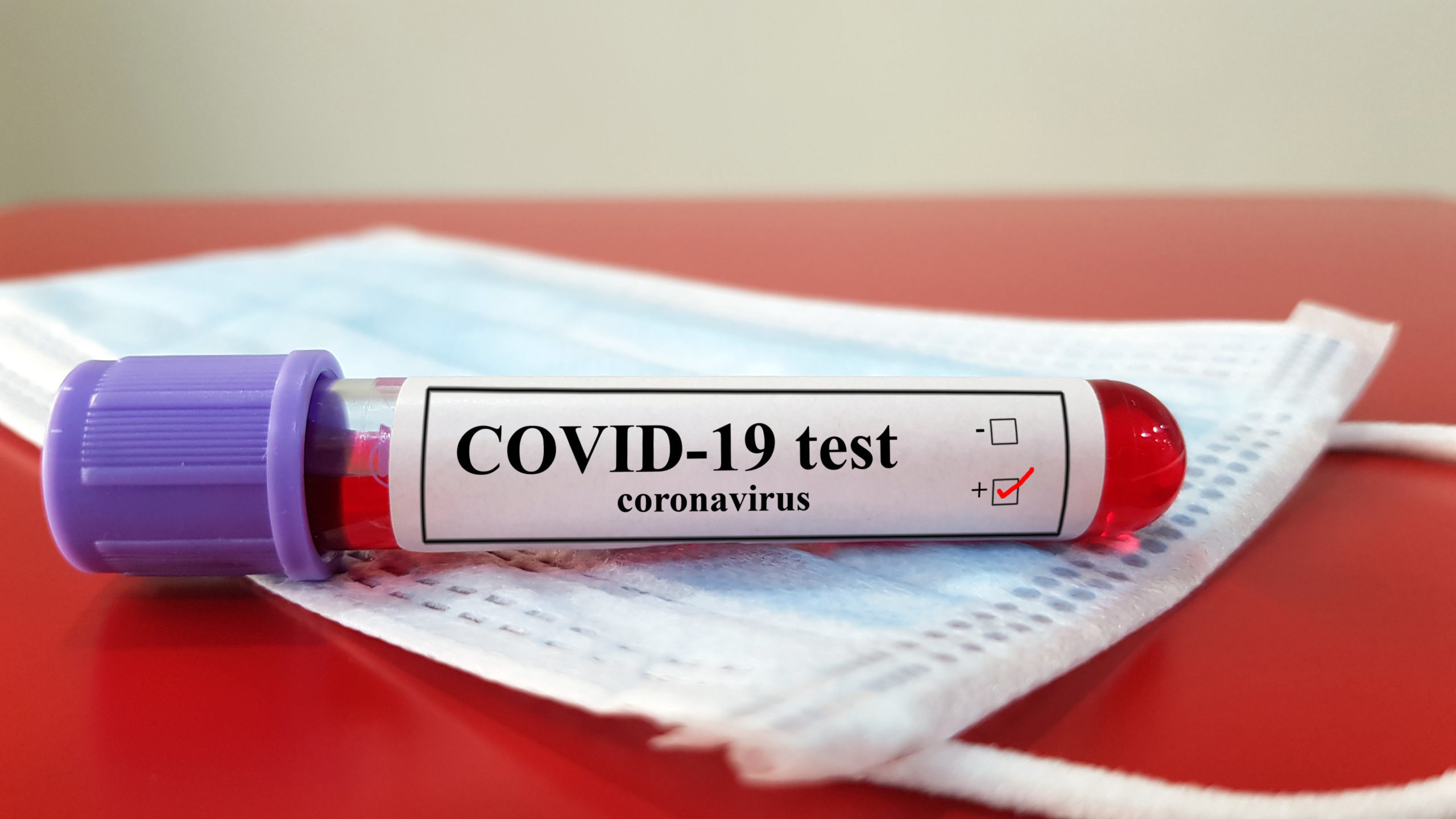
That Will Leave a Mark: FDA’s Shifting Approach to Regulating the Coronavirus Testing Market Creates Confusion, Opportunities, and Enforcement Risk
When the books are written about the coronavirus pandemic, the saga surrounding coronavirus testing will need its own chapter. Maybe several. Earlier this year, coronavirus tests were in short supply, and the federal government faced intense pressure to increase availability. The Food and Drug Administration (FDA) was forced to develop a regulatory structure for coronavirus tests that would both increase national testing capacity and ensure the accuracy of the tests on the market. It’s been a bumpy ride. The regulatory landscape has shifted repeatedly as FDA and the senior leadership at the Department of Health and Human Services (HHS) responded to criticism that FDA was both too aggressive in its regulation of Laboratory Developed Tests (LDTs) and not aggressive enough in addressing inaccurate tests on the market. Further complicating the situation, the Department of Justice (DOJ) is now bringing criminal charges against manufacturers and health care providers that allegedly violated federal law in developing and marketing coronavirus tests. Although it is difficult to predict anything with certainty these days, the warning signs for companies operating in this area are clear. Everyone is under the microscope.
FDA’s Approach to Regulating Coronavirus Testing Triggers Additional Scrutiny
In late February, FDA recognized that the United States did not have enough testing capacity to meet the growing need for coronavirus[1] tests. At the same time, FDA also recognized that inaccurate tests could pose a significant risk to the public, and the agency needed to ensure that tests were properly validated. As a result, on February 29, FDA issued a guidance document that developed a regulatory framework for diagnostic molecular tests, which are designed to detect the presence of the coronavirus and diagnose acute infection.[2] The guidance outlined FDA’s expectations for the validation of molecular tests and clarified that laboratories that have been certified to perform high-complexity testing under the Clinical Laboratory Improvement Amendments (CLIA) would be required to submit an Emergency Use Authorization (EUA) to the agency for their molecular coronavirus LDTs.
It was a controversial step. Historically, FDA has not required most LDTs to undergo premarket review, choosing to exercise enforcement discretion over LDTs while insisting that FDA retains the authority to require premarket review of LDTs under the Federal Food, Drug, and Cosmetic Act. FDA recently tried to expand premarket oversight of LDTs through a draft guidance,[3] but FDA backed off and withdrew the proposal in 2017.[4] Despite the complicated regulatory history surrounding LDTs, FDA decided to channel them through the EUA process in order to assert more regulatory control over coronavirus testing.
On March 16, FDA issued a new guidance that was designed to create additional regulatory flexibility for LDTs and commercial manufacturers of coronavirus tests.[5] First, FDA announced that LDTs would not be required to obtain EUAs if they were regulated at the state level. Second, FDA created more flexibility for serological tests that detect antibodies developed in response to a coronavirus infection. FDA announced that the agency would take a more flexible approach to regulating antibody tests because they “are less complex than molecular tests,” and, unlike molecular tests, antibody tests are not supposed to be used as the sole basis to diagnose a coronavirus infection.[6] Under FDA’s updated policy, an EUA was required for molecular tests, but not for antibody tests. Antibody tests could be marketed without prior review or authorization from FDA as long as the tests had been validated and the tests were accompanied by adequate warning statements.
Over the course of March and April, the market for coronavirus antibody tests grew rapidly. At the same time, independent researchers began questioning the accuracy of the tests and FDA’s failure to evaluate validation data. The New York Times reported that a group of independent scientists tried to validate fourteen coronavirus antibody tests on the market and concluded that “of the 14 tests, only 3 delivered consistently reliable results.”[7]
On April 24, the Subcommittee on Economic and Consumer Policy of the House Committee on Oversight and Reform issued a staff report criticizing FDA’s regulation of coronavirus antibody tests. The Subcommittee’s conclusions were blunt: “FDA has failed to police the coronavirus serological antibody test market, has taken no public enforcement action against any company, and has not conveyed any clear policy on serological tests, but rather has issued a series of unclear ‘clarifications.’”[8]
FDA quickly shifted course. On May 4, the agency announced that it was revising its policy regarding coronavirus testing and specifically imposed more oversight on commercial manufacturers of coronavirus antibody tests. Unlike the previous policy, which permitted manufacturers to market antibody tests without an EUA and without submitting data to FDA, the new policy requires manufacturers to submit an EUA with their validation data to the agency. However, FDA clarified that CLIA-certified laboratories were not required to submit EUAs for their antibody tests and were merely “encouraged” to file EUAs.[9]
FDA also signaled that the agency would take a more aggressive approach to enforcement in the diagnostics industry, noting that “FDA has become aware that a concerning number of commercial serology tests are being promoted inappropriately, including for diagnostic use, or are performing poorly based on an independent evaluation by the NIH.”[10]
In August, the regulatory landscape changed once again for LDTs. On August 19, the Department of Health and Human Services undercut FDA’s longstanding position on LDT regulation and announced that FDA does not have the authority to require premarket review of any LDTs absent notice-and-comment rulemaking. HHS explained that “[l]aboratories developing tests solely to be used within the lab (laboratory developed tests, or LDTs) do not need to undergo pre-market review by the FDA. It is important to note, this pre-market review requirement has almost never been enforced. In the case of future pandemics, this decision will allow labs to quickly develop and utilize tests.”[11] HHS’s decision on this issue reflects a significant shift in the federal government’s interpretation of the law and will have an impact on the regulation of LDTs for years to come.
Despite the complexities of FDA regulation in this area, DOJ has already taken an aggressive stance toward manufacturers and marketers of coronavirus tests as a part of DOJ’s larger focus on coronavirus enforcement, potentially foreshadowing where things might be headed for many stakeholders in the industry.
Recent DOJ Prosecutions Highlight Enforcement Risks
In March, at the same time FDA was loosening restrictions on coronavirus antibody tests, DOJ was gearing up for pandemic-related prosecutions. On March 16, Attorney General Barr circulated a memorandum to all U.S. Attorneys directing each U.S. Attorney’s Office “to prioritize the detection, investigation, and prosecution of all criminal conduct related to the current pandemic.”[12]
U.S. Attorney’s Offices across the country have taken a broad view of their mandate. DOJ enforcement has not been limited to fly-by-night companies in China and purveyors of fraudulent treatments. DOJ has already initiated complex prosecutions against established companies that have sought to provide goods and services during the pandemic. Recent prosecutions suggest that DOJ is increasingly focusing its attention on the coronavirus testing industry.
For instance, on May 27, the U.S. Attorney’s Office for the District of Arizona announced that the government charged Jeremiah Faber, the CEO of Harmony Healthcare, with healthcare fraud and money laundering after his company bundled free coronavirus antibody tests with a series of allegedly unnecessary tests.[13] According to the government’s complaint, Harmony Healthcare advertised free coronavirus antibody testing “as a part of a comprehensive health assessment,” which included bone density tests, allergy tests, and heart rate tests, among other diagnostics.
Less than two weeks after announcing charges against Faber, DOJ announced another prosecution that wades deeper into the coronavirus testing industry. On June 9, the U.S. Attorney’s Office for the Northern District of California announced that Mark Schena, the president of Arrayit Corporation, a publicly traded medical diagnostics company, was charged with health care fraud and securities fraud in connection with his company’s coronavirus antibody test.[14] According to the complaint, Schena made false statements about the accuracy and developmental status of the company’s coronavirus test, and “after SCHENA developed a purported test [for coronavirus], SCHENA and others failed to disclose that it failed to satisfy FDA performance standards for obtaining an emergency use authorization, which is necessary for an unapproved medical device to be legally marketed and sold in the United States during the public health emergency related to COVID-19.”
Schena’s public filings have already hinted that FDA’s shifting regulatory policies regarding coronavirus antibody tests and LDTs are going to be central to his defense. In a motion seeking to modify his conditions of release, Schena challenged DOJ’s assertion that an EUA “is necessary for an unapproved medical device to be legally marketed,” claiming that he operates a CLIA-certified high-complexity laboratory, which FDA exempted from the EUA requirements in its May 2020 policy.[15]
The Schena prosecution raises interesting questions about FDA’s regulation of coronavirus antibody tests: What happens if FDA refuses to approve a “voluntary” EUA submitted by a CLIA-certified lab? If the company is publicly traded, are they required to disclose it to the public? If so, what exactly must be disclosed? DOJ appears to be taking an aggressive position on these issues. It is an interesting dynamic that we’ve seen in other cases, where DOJ has advanced criminal charges that implicate a complex regulatory history at FDA. This is something to keep an eye on as the government’s enforcement efforts heat up.
Challenges Ahead for Companies Operating in this Area
Ironically, FDA’s initial decision to loosen its regulatory approach with respect to coronavirus antibody tests may have worked to the disadvantage of the diagnostics industry and health care providers, who are now subject to increased scrutiny from congressional investigators and prosecutors at DOJ. Everyone operating in this area, including laboratories, manufacturers of commercial tests, and health care providers, should be aware of the looming enforcement risks.
Commercial Manufacturers of Coronavirus Tests
Commercial manufacturers that launched coronavirus antibody tests under FDA’s initial “no-EUA” policy announced in March are particularly at risk. Companies that launched tests should be continuously monitoring real-world data and customer complaints regarding their tests and carefully evaluating FDA reporting requirements for those incidents. DOJ is going to be focused on complaints that potentially signal underlying accuracy issues, as well as how those complaints were investigated and addressed. It is also important to evaluate potential weaknesses in the validation process that could be scrutinized by the government. Under these circumstances, honest and thorough self-assessments are critical.
Laboratory Developed Tests
Regulatory freedom can be very dangerous. Despite the recent proclamation from HHS, LDTs are not exempt from FDA and DOJ enforcement activity. Any hint of systemic accuracy problems will draw the attention of prosecutors working on pandemic-related investigations. And they will have an array of potential enforcement tools at their disposal, including mail and wire fraud statutes that often serve as catchall charges for conduct that prosecutors find problematic.
Health Care Providers
The government’s case against Faber highlights the risks to health care providers marketing coronavirus tests, particularly when the tests are part of a broader array of tests and services offered to patients. Even though the Faber prosecution does not delve into the accuracy of the tests administered or potentially problematic claims made about the diagnostic capacity of antibody tests, it is easy to see potential enforcement risks for health care providers in those areas as well.
Companies Marketing Products Under EUAs
Other companies operating in this area also need to be vigilant. FDA’s decision to generally loosen regulatory restrictions and facilitate the rapid launch of products created significant opportunities and significant risks. It is especially important to keep in mind that an EUA from FDA will not inoculate a company from enforcement. Even though an EUA provides more regulatory flexibility, it is not a “get out of jail free” card. FDA and DOJ still have plenty of enforcement options if something goes wrong.
[1] This article uses the common term “coronavirus” for the virus that has been formally named SARS-CoV-2.
[2] Coronavirus (COVID-19) Update: FDA Issues New Policy to Help Expedite Availability of Diagnostics, U.S. Food & Drug Admin. (Feb. 29, 2020), https://www.fda.gov/news-events/press-announcements/coronavirus-covid-19-update-fda-issues-new-policy-help-expedite-availability-diagnostics.
[3] U.S. Food & Drug Admin., Draft Guidance for Industry, Food and Drug Administration Staff, and Clinical Laboratories: Framework for Regulatory Oversight of Laboratory Developed Tests (LDTs) (Oct. 3, 2014), https://www.fda.gov/media/89841/download.
[4] U.S. Food & Drug Admin., Discussion Paper on Laboratory Developed Tests (LDTs) (Jan. 13, 2017), https://www.fda.gov/media/102367/download.
[5] U.S. Food & Drug Admin., Coronavirus (COVID-19) Update: FDA Provides More Regulatory Relief During Outbreak, Continues to Help Expedite Availability of Diagnostics, (Mar. 16, 2020), https://www.fda.gov/news-events/press-announcements/coronavirus-covid-19-update-fda-provides-more-regulatory-relief-during-outbreak-continues-help.
[6] Id.
[7] Apoorva Mandavilli, Coronavirus Antibody Tests: Can You Trust the Results?, N.Y. Times, Apr. 24, 2020.
[8] Preliminary Findings of the Subcommittee’s Coronavirus Antibody Testing Investigation, April 24, 2020, Subcommittee on Economic and Consumer Policy, Committee on Oversight and Reform, House of Representatives, https://oversight.house.gov/sites/democrats.oversight.house.gov/files/ECP%20Staff%20Report%20on%20Preliminary%20Findings%20of%20the%20Subcommittee’s%20Coronavirus%20Antibody%20Testing%20Investigation.pdf.
[9] U.S. Food & Drug Admin., Policy for Coronavirus Disease-2019 Tests During the Public Health Emergency (Revised): Immediately in Effect Guidance for Clinical Laboratories, Commercial Manufacturers, and Food and Drug Administration Staff 15 (May 4, 2020), https://www.fda.gov/media/135659/download.
[10] Anand Shah, M.D. & Jeff Shuren, M.D., Insight into FDA’s Revised Policy on Antibody Tests: Prioritizing Access and Accuracy, U.S. Food & Drug Admin. (May 4, 2020), https://www.fda.gov/news-events/fda-voices/insight-fdas-revised-policy-antibody-tests-prioritizing-access-and-accuracy.
[11] U.S. Dep’t Health & Human Servs., FAQs on Laboratory Developed Tests (LDT), https://www.hhs.gov/sites/default/files/laboratory-developed-tests-faqs.pdf.
[12] Memorandum from Attorney General Barr to United States Attorneys, Mar. 16, 2020, https://www.justice.gov/ag/page/file/1258676/download.
[13] U.S. v. Faber, Case No. 2:20-mj-03150-MTM (D. Ariz.).
[14] Press Release, Medical Technology President Charged in Scheme to Defraud Investors and Health Care Benefit Programs in Connection with COVID-19 Testing, U.S. Attorney’s Office for the Northern District of California (June 9, 2020), https://www.justice.gov/usao-ndca/pr/medical-technology-company-president-charged-scheme-defraud-investors-and-health-care.
[15] U.S. v. Schena, Case No. 5:20-mj-70721 (N.D. Cal.), Doc. 12, Defendant’s Brief Regarding Bond and Conditions of Release, at 5.
Update Magazine
Winter 2020

 PETER LEININGER is a member of King & Spalding’s FDA & Life Sciences Practice in Washington, D.C. He represents medical device, pharmaceutical and biotech companies in FDA regulatory and enforcement matters, including civil and criminal government investigations. Pete is a former Associate Chief Counsel for Enforcement in FDA’s Office of Chief Counsel.
PETER LEININGER is a member of King & Spalding’s FDA & Life Sciences Practice in Washington, D.C. He represents medical device, pharmaceutical and biotech companies in FDA regulatory and enforcement matters, including civil and criminal government investigations. Pete is a former Associate Chief Counsel for Enforcement in FDA’s Office of Chief Counsel. 